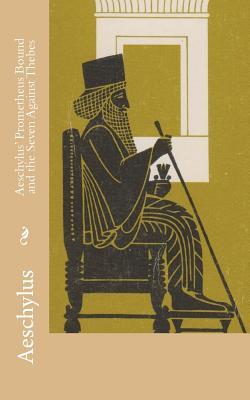What do you think?
Rate this book


78 pages, Paperback
First published April 2, 1897
The three-star rating was mostly for Prometheus Bound [Chained]. Although there are important insights in the Seven Against Thebes,” the storyline lacked a connection for me.
In the introduction of Prometheus Chained, the translator makes a statement that is hard to improve on. This play is “The sublimest poem and simplest tragedy of antiquity”. To this, I would mostly agree; adding the predicate of Western in front of “antiquity”.
The fascination, for me, began with seeing Prometheus as only partially mortal, meaning above humankind; yet, still a part of it. This led me to consider the introduction where it is noted that:
“Prometheus being bound and left alone, bemoans his fate and relates to the chorus of nymphs the base ingratitude of Jove, who through his counsels having overwhelmed the aged Saturn beneath the murky abyss of Tartarus, now rewards his ally with indignities because he had compassion upon mortals.”
Another interesting part of Prometheus Chained is the parallel to Socratic Wisdom. For example, Ocean says,
“I see Prometheus, and to thee, subtle as thou art, I wish to give the best counsel. Know Thyself…”
“…’[T]is of the highest advantage for one that is wise not to seem wise”.
From Seven against Thebes, I was only able to collect one important statement. This statement was mostly pertaining to a philosophical political position; nevertheless, it is an important aspect of looking at the state of the “State,” or the “Affairs of State”:
“…and the state at different times sanctions different maxims of justice.”